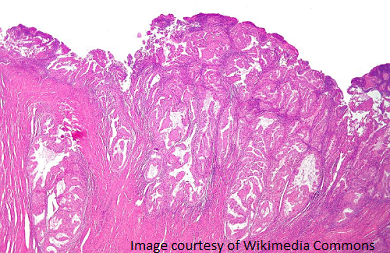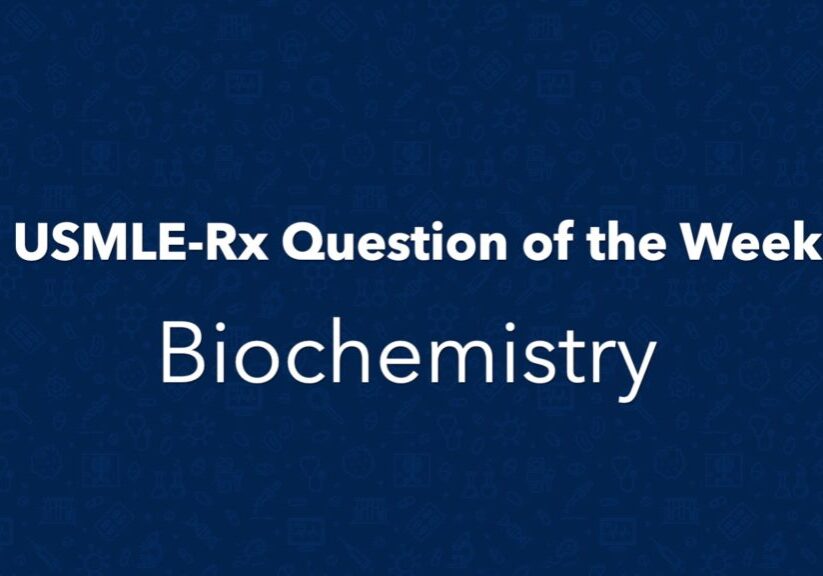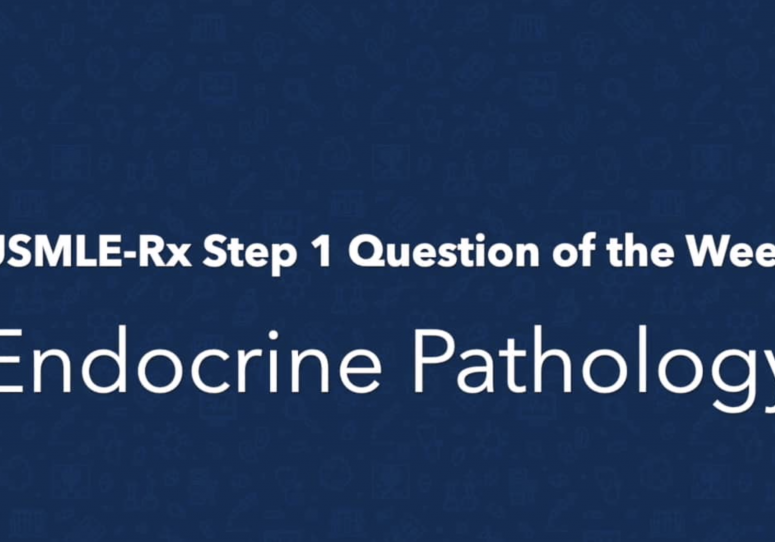Check out today’s Step 1 Qmax Question Challenge.
Know the answer? Post it below! Don’t forget to check back for an update with the correct answer and explanation (we’ll post it in the comments section below).
 A 58-year-old obese G3P3 woman complains of heavy menstrual bleeding for the past few months. Her medical history is significant for type 2 diabetes and hypertension, both of which are medically managed. She has a 15-year smoking history and no history of cancer in her family. Endometrial biopsy is performed and shown in the image. It confirms the diagnosis of a neoplastic process.
A 58-year-old obese G3P3 woman complains of heavy menstrual bleeding for the past few months. Her medical history is significant for type 2 diabetes and hypertension, both of which are medically managed. She has a 15-year smoking history and no history of cancer in her family. Endometrial biopsy is performed and shown in the image. It confirms the diagnosis of a neoplastic process.
Which of these would have most reduced her risk for her current condition?
A. Having no children
B. Late menopause
C. Losing weight
D. Quit smoking earlier
E. Seeking genetic counseling
———————–
Want to know the ‘bottom line?’ Purchase a USMLE-Rx Subscription and get many more features, more questions, and passages from First Aid, including images, references, and other facts relevant to this question.
This practice question is an actual question from the USMLE-Rx Step 1 test bank. For more USMLE Step 1 prep, subscribe to our Flash Facts and Step 1 Express video series. Score the best deal on all three products with a Step 1 Triple Play Bundle.





E) would have been a great option these days but I would have also preferred that C)losing wait and D) cessation of smoking would also have assisted in her aim. Though Cessation of smoking also needs for the Withdrawal Symptoms to be controlled, that might be secondary.
C.
D
C
that extra estrogen comes from fat……..
C
Thank you Alex! Your explanation helps other students to understand the question.
I would also say C because of the excess fat
D
The correct answer is C. This patient presumably has endometrial carcinoma. Among the listed choices, obesity is the most significant risk factor for endometrial carcinoma. The proposed mechanism of this risk is thought to be the increased conversion of androgens to estrogens in obese individuals. Women who are overweight are twice as likely to get endometrial cancer than are women who maintain a healthy weight; women who are obese are more than three times as likely to get endometrial cancer.
A is not correct. Nulliparity would have increased her risk for endometrial cancer.
B is not correct. Late menopause, or more specifically a woman’s total number of menstrual cycles, is a significant risk factor for endometrial carcinoma because of increased exposure to estrogen. Thus, early menarche or late menopause increase this risk; however, this risk is less significant than that related to obesity.
D is not correct. There is no known association between smoking and endometrial carcinoma.
E is not correct. Genetic counseling would not play a role in this patient’s cancer, especially as there is no family history of cancer.